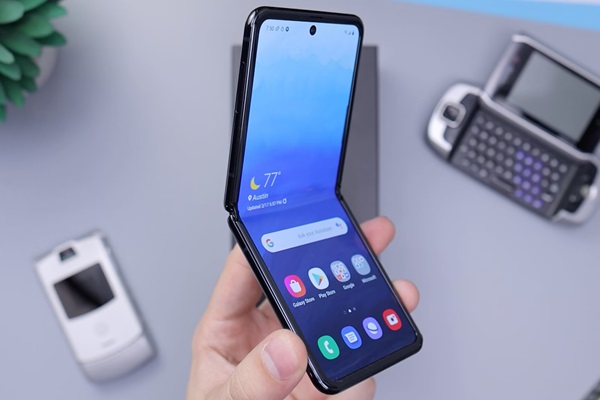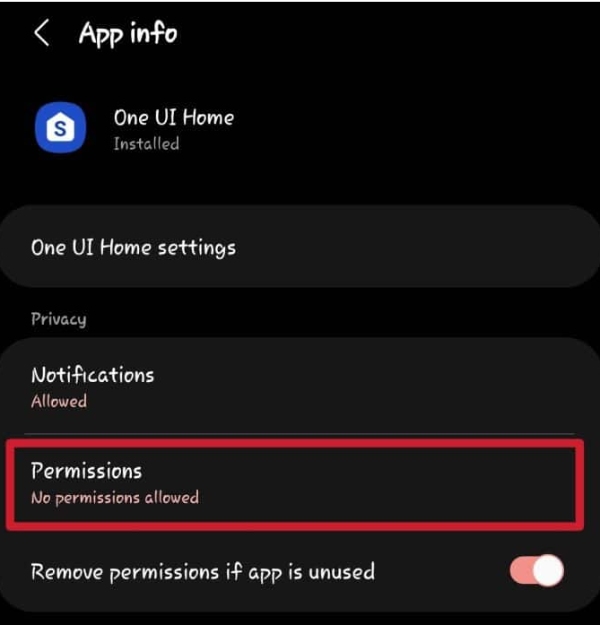Is One UI Home a spy app? With heightened data privacy and information security problems, people raise questions about whether One UI Home collects user’s data and intent behind its extensive permissions.
With a phone being a mobile storage of sensitive detail, risk identification related to preloaded apps including One UI Home becomes necessary. This article delves into allegations of Android One UI Home, scrutinizing its features, policies, and the need for transparency by tech giants in how they manage user data.
What is the app One UI Home used for?
One UI Home is Samsung’s unique default launcher and interface overlay for all Samsung Galaxy smartphones and tablets. It operates as a standard home screen launcher that allows personalization of apps, widgets, and home screen elements in the most preferred ways.
Generally, it integrates various Samsung services and features, such as:
- Customization possibilities that include templates, icons, and layouts.
- Integration with Samsung’s cloud and Samsung account service.
- Gesture navigation and, of course, the Samsung specific settings and features.
Essentially, One UI Home is Samsung’s home screen that contains all the applications, features, and services of their ecosystem on Android-based devices. The primary intention is providing a full and consistent experience for Samsung users that are specific for their hardware and software environment.



Uncover the truth about One UI Home and protect your and loved one’s phone from hidden threats.
Is One UI Home a spy app?
No evidence exists that One UI Home is a ‘spy app‘ to catch user data without their prior know-how. One UI Home is an in-built launcher exclusively designed by the smartphone giant, Samsung, for all its Galaxy devices running Android as the core operating system.
It works in the same vein with other pre-installed system apps that send usage data to Samsung for analytics and improving the end-user experience. Besides that, many operating systems also monitor data collection and approval from the user.
Another key point, One UI Home is in line with the standard Android permission system. The users can review and control the data permissions during the setup.
Understand how the spy apps work
Spy apps, alternatively known as stalkerware or surveillance apps, are intended to discreetly monitor and obtain data from a target cell phone without the user’s cognizance or permission.
They achieve unauthorized access to the device through stealth installation, taking advantage of vulnerabilities, or piggybacking on legitimate smartphone applications.
Once installed, they can monitor a wide range of activities like call logs, text messages, emails, and location data, and even activate a camera/microphone for recording. Data is usually uploaded to a remote server that an attacker can control, which could allow them to secretly spy.
Potential Risks of spy apps include:
- Privacy violation: Surveillance actions through spy apps try to get private data of the victim and thus stalk and abuse the person.
- Security vulnerabilities: Spy apps may even crack your device’s security measures to eavesdrop on the device. Thus, the phone becomes more vulnerable to other viruses or malicious data breaches.
- Legal issues: Spying apps if pushed through definitely may break laws, for example, computer crimes law, privacy laws, and the law against wiretapping.
- Psychological impact: It is quite possible that the monitoring can lead the victim to experience severe mental distress, paranoia, loss of trust, and generalized anxiety.
- Enabling abuse: Surveillance apps are the probable cause of second order abuse behavior such as domestic violence, stalking, and child exploitation among others.
Check One UI Home permissions: Is it a spy app?
To check if One UI Home has excessive or concerning permissions that could categorize it as a “spy app”. Follow these steps on your Samsung devices:
- Open the “Settings” > “Apps”
- Search for the “One UI Home” or “Home Screen” app and tap on it.
- Then you will see “App Info”. Click on “Permissions” to find out what it requires.



Certainly, most of the permissions requested by One UI Home are needed for normal function as a home screen launcher and UI customization app.
Some expected permissions may include:
- Access to Storage/Photos/Media: To apply wallpapers, icon packs, etc.
- Location Access: For location-based widgets, contextual information involves data such as weather conditions and nearby attractions.
- Phone/Contacts: For example, caller ID and contact suggestions.
- Notifications Access: To manage and take care of app badges and notification cards.
The permissible functions might differ from one Android version to another, although One UI Home permission must be consistent with the Home Screen modification functionality.
You’d better never give anybody special free access to intercept communications like SMS messages, call history, and internet traffic.
Samsung also has a personal privacy policy that describes the types of data One UI Home is collecting. Those are mostly employed for general usage/analytics to improve product usability.
Considering the given permissions and the Samsung privacy policy, One UI Home can not be “spyware”. Furthermore, this app has the necessary permissions to power Samsung’s proprietary Android system and to enhance the overall user experience rather than monitor.
Can I remove One UI Home from my Samsung phone?
One UI Home on Samsung phones cannot be fully erased or removed as a system app that is deeply bound to the Android software.
One UI Home is the built-in launcher and, therefore, a key part of One UI, Samsung’s own custom Android skin. Samsung developers designed it to be the home screen, with many customization features and is one of proprietary components.
However, a user can disable One UI Home if he or she prefers a launcher in a third-party application instead. Here are the steps to follow:
Here are the steps to follow:
- Go to “Settings” > “Apps” > “One UI Home”
- Tap the “Disable” button. This will stop One UI Home from working and handling your home screens.
At this point, you can download another launcher app as your newly assigned launcher. However, you can not eliminate the whole One UI Home from non-rooted Samsung devices because it’s the foundation of their customized Android system.
Bonus: How can you protect a kid’s Samsung phone from hidden spy apps?
Protecting digital privacy and cybersecurity for children in today’s digital-driven reality becomes more and more challenging.
As the popularity of smartphones and the ease of downloading applications is growing, it is essential to keep in mind the possibility of trap applications which are so-called spy programs.
Here are some tips to help safeguard your kid’s Samsung phone from such intrusions:
1. Keep apps updated – Update newest apps on the target device to fix security bugs.
2. Use FlashGet Kids – The FlashGet Kids app helps you to manage the app installed, limit screen time & block apps. It can assist you to detect and uninstall any hidden spy applications from your kid’s gadget.
3. Educate your children – Talk to your children about online safety, and the risks associated with installing apps from unidentified sources. Encourage them to be careful and ask for your advice if they see anything suspicious.
4. Use antivirus apps – Install trustworthy antivirus software on the phone to detect and remove any suspicious spy apps.
5. Perform regular checks: Carefully go through the applications on your child’s phone and check for any suspicious or unknown ones. Also, check the permissions of the app to ensure that it doesn’t get access to sensitive data or features secretly.
In conclusion, safeguarding a child’s Samsung phone from hidden spy apps necessitates a multi-layered approach. First, educating children about the risks of downloading suspicious apps and the importance of privacy is paramount. Additionally, regularly monitoring the device for any unusual activity and installing reputable software can provide an added layer of protection. In any case, a trustworthy parental control app can easily relief parents’ concerns about their children’s online safety.
FAQs
Is Samsung One UI secure?
Whereas Samsung One UI will be believed to be secure, it can also have a lot of security problems, the same as with every other software system. Samsung does the updating of the security on a monthly basis and they focus on the patching holes of known vulnerabilities.
Why do people use Samsung One UI Home?
One UI Home is built into Samsung devices to be flexible, user-centric, and simple navigation. Besides, it has a night mode and is integrated with other Samsung services.
Does Samsung One UI Home hidden apps?
No, the Samsung One UI Home OS does not have any hidden apps that are pre-installed on the system. Yet, there could be third-party applications/malware on the device without an outward trace on it.
How do you find hidden apps on Samsung One UI?
The procedure of detecting spy apps requires you to get access to the Settings and there click “Apps”, tap the menu with three dots, select “Show system apps”, and examine those apps which you do not know or you consider to be suspicious.

